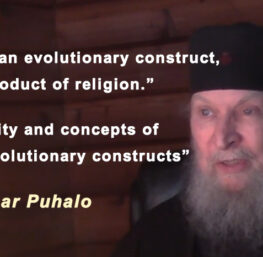Creation Ministries | David Anderson | Sept. 3, 2008
Theistic evolutionist Denis Alexander has a new book coming out, entitled Creation or Evolution—Do We Have to Choose? To give this effort some publicity, Third Way magazine published an article by Dr Alexander, ‘Viva la evolution’, which translates loosely as ‘Long live evolution’. I have many points of disagreement with the article, but here I want to respond to Dr Alexander’s theological arguments and draw attention to the biblical and philosophical flaws in his position.
Dr Alexander argues that Christians should, in the 200th anniversary of Darwin’s birth next year, ‘be celebrating Darwin enthusiastically, for he has provided us with a great theory that provides the framework for all contemporary biological and biomedical research. All truth is God’s truth.’ This closing statement is the deeply misleading ‘two books’ teaching. It claims that there are two ultimate, equal and independent sources for truth, which are perfectly complementary. These are God’s written word in Scripture, and secondly nature which is interpreted by scientific study.
According to Dr Alexander, (evolutionary) science and Scripture provide two parallel stories, neither contradicting the other, and we can embrace both. Science gives us accurate facts about the past. The book of Genesis identifies the person (God) ultimately responsible for those facts. Science tells us what went on; the Bible gives us the meaning of it. This is the classic ‘fact/value’ divide that has ruined the Christian culture of the West in the recent centuries. The everyday things of life—the things we can see, touch and observe—are handed over to science, relegating religion to just providing a separate interpretation. Science is the reliable teacher of (objective) truths for public life, and Christianity provides (subjective) values for the private individuals who happen to believe it. Science is an unbiased, self-interpreting and near-infallible voice that we can rely on, and it and not religion (which is uncertain and personal) should be our final authority.
In his opening words, Dr Alexander laments that Christians should be wasting their time on talking about evolution when thousands and millions of poor people are living without Jesus (cf. ‘You should be feeding the Hungry’). This false dichotomy is an indication of where Dr Alexander is heading. He goes on to explain that evolution is simply a brute fact with no ideological implications. (By ‘evolution’ he seems to mean mainly common ancestry, as he concedes that the following are all still under dispute—the mechanisms of speciation, the level at which natural selection actually operates, and what the supposed ancestries of living creatures actually are!) We may be descended from monkeys, and be part of the same family tree as gnats and nettles, and we may have only risen above them in the history of the world because our ancestors were the fittest to survive—but these facts, Dr Alexander says, do not mean anything and it is wrong for atheists to use them against Christianity. On the other side of the coin, the early chapters of Genesis give us no real information about anything in the history of humanity or the world. They simply explain that it was the God of Israel who was responsible for what happened. Science tells us what happened: Genesis tells us who was driving it all.
One book, not two
The Bible does not endorse this ‘two books’ approach to truth, where Scripture and science are each given complementary roles. It is true that the created world is revealing truth to us (Psalm 19), but in the Bible this is always in terms of an immediate and infallible declaration about God’s glory and power (e.g. Romans 1:18, not about the uncertain results obtained as inferences from scientific study. Neither does Scripture teach that its own authority is limited to matters of private interpretation and the providing of values to be added to the information found from somewhere else. The Bible claims to be fully and finally authoritative on every subject on which it speaks (2 Timothy 3:16). It does not limit itself to statements about spiritual truths, but speaks, sometimes at length, though often very briefly, on all kinds of matters relating to e.g. history, geography (the first five books of the Bible in particular) and even biology, which we will come to later. The Son of God declared that ‘Till heaven and earth pass, one jot or one tittle shall by no means pass from the law [i.e. Moses’ writings], till all be fulfilled.’ He himself referred to statements in the Old Testament about the beginning of the world (Matthew 19:4), about the history of ancient cities (Matthew 11:23), about an act done by David as a fugitive from Saul (Matthew 12:3–4), and about the time spent by Jonah inside a large fish (Matthew 12:39). Jesus accepted the clear testimony of the Old Testament in general and Genesis in particular without question, without giving any hint that his interpretations were subject to past, present or future scientific verdicts.
Examples like these destroy the idea that modern science can make statements without coming under the Bible’s scrutiny. It is as certain a finding of science as any that dead men do not rise. The Bible, though, asserts that the most important fact in all human history is that Jesus of Nazareth rose from the dead—and that by His life we may also live (1 Corinthians 15:3).
Unbelieving theological liberals reject miracles a priori, so will tell us that dead men do not rise, and that therefore the resurrection stories must be given another meaning—such as saying that the vision and power of Jesus live on, though not His body. Evangelical Christians rightly reject this idea, because it gives the opinions of men more weight than the plain words of the Bible. Attempting to harmonise evolution with the Bible is the same mistake.
The issue is one of authority. Dr Alexander is claiming for ‘science’ a voice equal and greater in authority to that of Scripture.
. . . more



